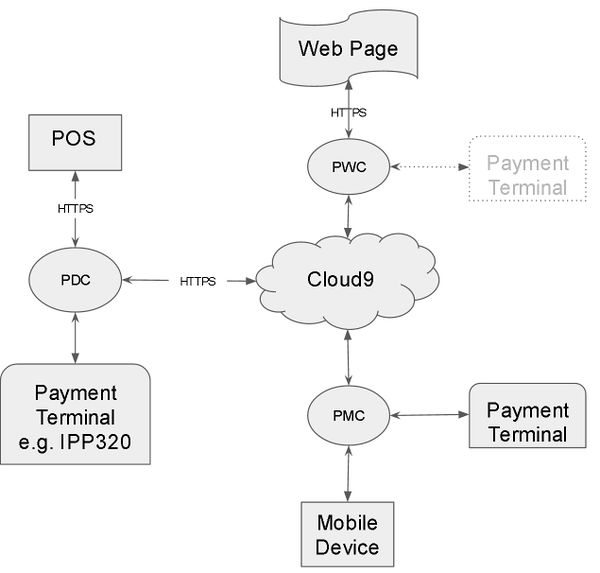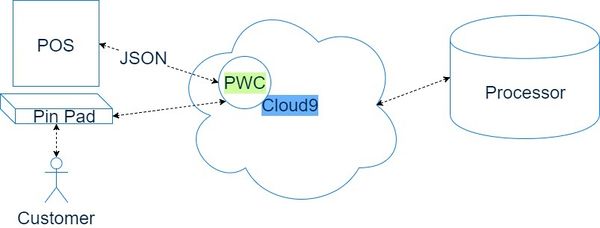Difference between revisions of "Payment Device Controller"
(Created page with "{{Template:C9Header|Store & Forward}} {{Template:PDC}} {{Template:C9Footer|Features}}") |
(No difference)
|
Latest revision as of 18:48, 22 August 2017
Cloud9 Payment Gateway Documentation. This site can also be reached at http://docs.cloud9paymentgateway.com
Contents
Optional Payment Device Controller (PDC) hides the complexity of low level communications with the payment terminals and adds Offline Store & Forward functionality, if desired.
The client (POS/web page/mobile device, etc) can communicate with the PDC, which will in turn control the payment perminal/pin pad and relate the processing instructions to the Cloud9 Payment Gateway.
This is the easiest form of integration and it is recommended.
Note: Variations of Payment Device Controller are Payment Mobile Controller (PMC) and Payment Web Controller (PWC), dealing with mobile and web based payment processing functionality respectively.
→ OPTION1: Local Payment Device Controller with Store and Forward Capability
| The client can communicate with a local Payment Device Controller (PDC) via SOAP, JSON or using the wizard like wrapper, written in C/C++/Java. |
→ OPTION2: No Local Software - Direct Cloud Connection to Cloud9 Payment Web Controller (PWC)
| The client can communicate directly with the cloud Payment Web Controller (PWC) via SOAP, JSON or using the wizard like wrapper, written in C/C++/Java. |
Payment Device Controller Setup
Please, see Cloud9 Payment Device Controller Setup
From the makers of Cloud9 Payment Processing Gateway and Creditline Credit Card Processing Software

